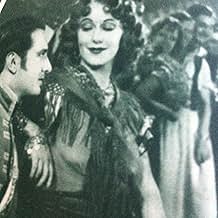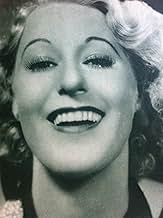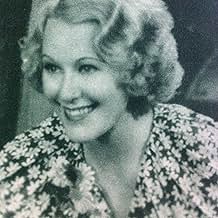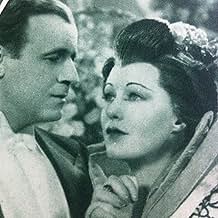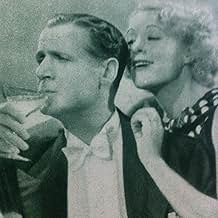Ajouter une intrigue dans votre langueMary, an aspiring opera singer, trains under famed maestro Guilio Monterverdi. Their professional relationship turns romantic amid hard work and clashes, but jealousy and misunderstandings h... Tout lireMary, an aspiring opera singer, trains under famed maestro Guilio Monterverdi. Their professional relationship turns romantic amid hard work and clashes, but jealousy and misunderstandings hinder their love's expression.Mary, an aspiring opera singer, trains under famed maestro Guilio Monterverdi. Their professional relationship turns romantic amid hard work and clashes, but jealousy and misunderstandings hinder their love's expression.
- Réalisation
- Scénario
- Casting principal
- Récompensé par 2 Oscars
- 5 victoires et 4 nominations au total
- Galuppi
- (as Andres De Segurola)
- Bartender
- (non crédité)
- Undetermined Role
- (non crédité)
- Children's Music Teacher
- (non crédité)
- Radio Judge
- (non crédité)
- Cafe Owner
- (non crédité)
- Minor Role
- (non crédité)
- Stage Manager
- (non crédité)
- Vegetable Man
- (non crédité)
- Undetermined Role
- (non crédité)
Avis à la une
This delightful musical was a huge success - the operatic selections are wonderful, as is the title song, which was a big recording success for Moore. Moore's voice is absolutely beautiful. Female singers were trained a little differently in those days, often backing off of their high notes. Moore does a little of that but has a glorious extension above high C. Her best singing is in her rendition of "One Night of Love"; unfortunately, the opera selections sung by "Maria Barrett" were vocally wrong for this charming lyric coloratura. Moore herself has a nice warm presence on screen, though I read once that she had an unfortunate resemblance to the comedienne Joan Davis. From certain angles, that is true, but she was photographed carefully and looks lovely throughout the movie, slender and beautiful. Due to marrying a Frenchman and living part-time in France, working at her opera career, concertizing and eventually entertaining the troops, Moore only made 9 films. She died in a plane crash in 1947 at 49 years of age.
The opera selections were, as always, on the strange side. Only in Hollywood would a lyric coloratura with a weak lower register and no chest voice sing Carmen! From the sound, female singers also were not taught to do a mix on the lower notes. The role for Moore in Carmen is Micaela, which is indeed the role she played. Surprisingly, she also in real life did Tosca and Butterfly, which must have been total disasters. Her Butterfly, the finale of the film, is not good, particularly at the end. Her voice just isn't powerful enough, nor should it be - she wasn't a spinto or dramatic soprano or even a big lyric! The voice suffers, occasionally falling out of placement in the middle range. "Sempre Libera" was a series of wrong and skipped notes. And she scooped like crazy. This is nitpicking, but I would have preferred to hear some "La Boheme," Mimi being her Metropolitan Opera debut, or the Jewel Song from Faust, or Micaela's aria, all of which suited her voice perfectly, and all of which she sang during her career.
If you love opera, you'll love "One Night of Love" for its glorious music and the elegantly-voiced Grace Moore.
At the time, Grace Moore got all the attention, as much for her shapely figure and for stepping down from her Metropolitan Opera pedestal as for her actual performance. Playing a soprano who spends her savings to study with a famous maestro in Italy, the 33 year-old Moore seems a bit of a late starter, but bounces around with lots of vivacity. Singing the title song and the inevitable "Ciri-Biri-Bin", she mostly avoids the pearls-before-swine tone of opera singers when they stoop to popular song, although she still sashays [especially as Carmen] and waves her arms too much for modern tastes.
Many decades later, it is clear that much of the charm was supplied by Tullio Carminati, an appealing comic actor with a wry quality, something like an Italian Walter Matthau. As Moore's mentor/romantic interest, he has a kind of offhand sophistication and the expert timing to support Moore's occasionally shaky line readings [of course, she's the one who got the Oscar nomination].
Director Victor Schertzinger soft-pedals the high culture, and manages several Lubitsch/Mamoulian moments: one amusing conceit has a building full of musicians all practicing different instruments in discord, until Moore unites the tunes with her impromptu rendition of "Sempre Libre" from LA TRAVIATA. Another enjoyable sequence presents singing a quartet from LUCIA as a strategy to avoid paying the rent. When the plot enters the tiresome misunderstandings phase, Schertzinger keeps the pace going until the finale, a staging of a scene from MADAME BUTTERFLY.
Throughout, Joseph Walker, Columbia's maestro of camerawork, softly lights Moore to utmost advantage, and even gets in a couple of zoom shots [in 1934!]
Le saviez-vous
- AnecdotesThis was the first film to win an Academy Award for Best Music Score (for Louis Silvers) as 1934 was the first year that an Oscar for this category was introduced.
- Citations
Mary Barrett: I have $500 of my own. I'm taking that money and I'm going to Italy to study!
Mr. Barrett - Mary's Father: Italy?
Mary Barrett: Yes!
Mrs. Barrett - Mary's Mother: Why, that place is full of Italians!
- ConnexionsFeatured in The Soundman (1950)
- Bandes originalesOne Night of Love
(1934) (uncredited)
Music by Victor Schertzinger
Lyrics by Gus Kahn
Sung by Grace Moore at a radio contest
Partially sung a cappella by Tullio Carminati twice
Played often in the score
Meilleurs choix
- How long is One Night of Love?Alimenté par Alexa
Détails
- Durée1 heure 24 minutes
- Couleur
- Rapport de forme
- 1.37 : 1
Contribuer à cette page


